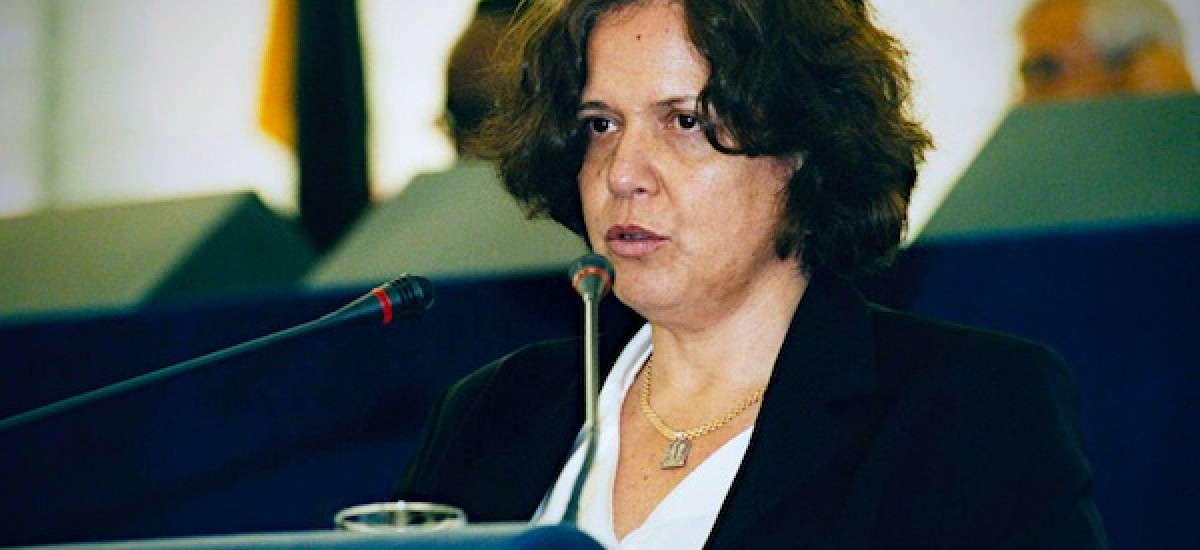Dr. Arnon Groiss, a scholar of Middle Eastern studies and a retired journalist of Israel’s Arabic Radio service, who has been studying, since the year 2000, the attitude to the ‘other’ and to peace in various Middle Eastern curricula, including the Israeli one.
He wrote:
I have been following Prof. Nurit Peled-Elhanan’s work for fifteen years. I first met her in 2003 at a European Council panel where I presented the case of Palestinian schoolbooks’ attitude to the Jewish-Israeli ‘other’ while she talked about the Israeli schoolbooks’ attitude to Palestinians. Having spent 12 years in Israeli schools I was astonished to hear that the books I had learned from were promoting the massacre of Palestinians. I was further amazed of her accusation that Israeli schoolbooks were teaching territorial expansion while ignoring the Hebrew text of the very source she presented, which described Israel’s agreements with its neighbors regarding the determination of their mutual borders. Three years later I decided to trace her sources and got the seven Israeli schoolbooks she had based her findings on and read them thoroughly. I found out that she had created a picture of a racist and murderous Israeli curriculum based on 1) distorted source material – that is, leaving out all pieces of evidence that contradicted her thesis, 2) invented “data” and 3) illogical interpretation of the evidence.
Following are some examples:
- She claimed that the 7 books she studied were denying Palestinian peoplehood and nationalism. I found over 20 examples to the contrary, including an assignment requiring students to describe the development of Palestinian nationalism in the years 1919-1939. She claimed the Israeli schoolbook never showed Palestinian figures and I found 15 photographs of Palestinians in those 7 books. She said that the Palestinian Arab city of Nazareth did not appear on the map and I found 16 such appearances. She further claimed that Israeli textbooks condoned massacres of Palestinians, in sharp contrast to the books’ condemnation of the massacres of Deir Yassin and Kafar Qassem.
- Peled-Elhanan accused the Israeli schoolbooks of having a racist Euro-centrist perspective, because one of them used the expression “far-away Yemen” when comparing to Russia and the Balkan, wrongly assuming that Yemen was the closest to Israel.
- She further accused the Israeli textbooks of racism because they used the term “Arab” for the minority population in Israel, suggesting it was derogatory, notwithstanding the fact that that population itself used that very term. She also interpreted a decorative picture of two Israeli soldiers on top of a map as a sign of expansionism since one of them aimed his weapon towards Syria [but the other soldier pointed his rifle at his fellow soldier!]. Finally, she claimed that the Israeli schoolbooks’ “positive” view of the massacres against the Palestinians was proved by their discussion of those massacres’ benefits to Israel’s cause, and she brought as an example the ruling against obeying unlawful orders that was issued following the Kafr Qassem massacre in 1956. But the wide discussion of that ruling in the books contradicts her very thesis of massacre indoctrination!
In short, Prof. Peled-Elhanan’s thesis proved to be falsely-based and, accordingly, should not be considered a scholarly work. She stated her preconceived thesis based on her personal political agenda and tried hard to find evidence to support it. She failed, for the simple reason that Israeli schoolbooks do not contain significant racist material, let alone massacre indoctrination. But she was not deterred and made formidable efforts to create evidence.









